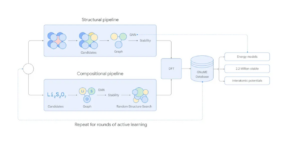Ever wondered how technology could make sporting events safer? The Royal Dutch Football Association (KNVB) and the Dutch Ministry of Justice and Security seem to think they’ve found the answer.
The KNVB is planning to test a digital reporting requirement for individuals banned from stadiums.
With this move they aim to facilitate easier stadium controls and reduce the need for police intervention. But is this a step in the right direction or a slippery slope toward infringing on personal freedoms?
What Is a Digital Reporting Requirement?
This is what it is all about. Anyone with a stadium ban would have to disclose their location through an app to the Dutch police. The idea is that this method is less restrictive and less invasive to personal privacy compared to a physical reporting requirement.
| Aspect | Explanation |
|---|---|
| Ease of Control | Allows for easier monitoring around stadium areas. |
| Police Resources | Lessens the need for police presence. |
| Privacy | Considered less intrusive than physical reporting. |
| Legal Backing | Supported by an amendment to the Football Act. |
Advantages and Concerns
It sounds like a win-win situation, doesn’t it? Easier controls1 at stadiums and less need for police manpower. Furthermore, the KNVB believes that judges2 are more likely to impose a digital reporting requirement because it’s less restrictive on individual freedoms.
However, implementing a digital reporting requirement isn’t as straightforward as it seems (it never is). There are legal and technical challenges. According to Mayor Paul Depla of Breda3, enforcing a reporting requirement during soccer matches could conflict with basic human rights like freedom of movement. This is a concern that the Public Prosecutor’s Office shares.
So, Is It a Good Idea?
We think that while the digital reporting requirement may offer operational advantages, it’s a double-edged sword. The initiative might make stadium management more efficient, but there are valid concerns about how it could potentially infringe on civil liberties. You don’t want this data to be abused..
So, should you be worried? It depends on how the system is implemented and how securely the data is managed (and if you are listed). But one thing is for sure: the debate over the balance between security and privacy is far from over.
References
- https://www.security.nl/posting/805672/Digitale+meldplicht+bij+stadionverbod+mogelijk+later+dit+jaar+ingevoerd ↩︎
- https://www.security.nl/posting/811625/KNVB+experimenteert+dit+voetbalseizoen+nog+met+digitale+meldplicht ↩︎
- https://www.parool.nl/nederland/experiment-met-digitale-meldplicht-voetbalhooligans-in-drie-steden~beb14854/ ↩︎

























+ There are no comments
Add yours